My brother
A photo of Laura Najera from earlier this year.
Laura Najera was born in LA and is a 23 year old working as a case manager in the legal field.
She shares her experience working as a case manager and what a day in her job looks like .
She shares some things she has overcome while working as a case manager and tells us why she decided to go into the legal field in the first place.
She also shares what she likes most about her job and the downsides of it. We also talk about some of her accomplishments and other career plans she had in mind before.
Laura also talks about what keeps her going while working, even though it can get stressful.
Transcript:
Arely Tapia : Um, Hi! Can you introduce yourself really quickly, just like your name and your age?
Laura Najera: Yea, so my name is Laura Najera and I’m currently 23 years old.
AT: Um, I wanted to interview you about your job and the things you do and what your job is basically.
LN: Yea, so I’m currently a case manager at an appointment law and personal injury firm. So right there I kind of just work directly under attorneys.
AT: Um, can you go into more detail, like what specifically do you do, and like what do you send and do with attorneys?
LN: Yea, and so I go ahead and let attorneys know what to do everyday. So I kind of give them like a schedule. I also let them know what court appearances they have and who they have to go ahead and respond to regarding their cases. So I kind of manage everything for them all they really have to do is go ahead and mostly draft the documents so I can go ahead and submit them. I also have a legal assistant who works for me and for anything that I need help with I go ahead and assign to her so she can go ahead and do stuff that isn’t as important usually.
AT: So you’re kind of like in charge of a decent amount of people?
LN: Yea, so the attorneys, they’re the ones with the licenses and everything, but we work really closely to make sure that everything goes well with the cases
AT: Mhm.
LN: So, in the mornings everyday we actually have a Zoom meeting. Kind of like how you guys had your Zoom meetings where I go ahead and let them know what deadlines we have, like what we have to go ahead and submit to the court that day. What we have to go ahead and follow up with a client, if there’s any meetings, if there’s anything that we have to urgently send over to the court. So everyday is really important, because I mean everyday matters. Because if we miss a deadline its like were kind of messing up somebody’s case.
AT: Yea, so would you say you really like close “work connection” with like the …
LN: The attorneys?
AT: Yea, with the attorneys!
LN: Yea, so with the attorneys, I have to communicate throughout the whole day! So it’s a lot of emails, a lot of calls, a lot of IMS [iMessage]. I basically have to go ahead and remind them what exactly they have to do, so they don’t forget, uh. The attorneys are really, really busy and that’s why a lot of clients, like I know they do get frustrated because they just want to go ahead and talk to an attorney, but I’m the one who handles all the calls because at the end of the day I’m the one who’s managing the case, so I would know about these cases through and through more than the attorneys sometimes. So I think that’s kind of the big misconception that people have about legal assistants, paralegals, or case managers because since we’re the ones handling everything we actually talk with the opposing counsel a lot as well. Sometimes they don’t think that we’re as important as the attorneys, so that’s kind of the big difference of understanding what we actually do.
AT: Ohhh, I feel like people would get confused a lot too with that since you work super closely together, and like it can get confusing because like .. yea .
LN: No, yea because like the clients when we go ahead and talk with them, uhh we go ahead and everyone has to introduce themselves, because we also want to build trust in them. So with attorneys in the beginning of the case they want to speak with an attorney, but at the end of the day they end up just knowing my legal assistant’s name and my name rather than the attorney’s. Since all the contact is really just going through us.
AT: Uh, and what would you say would be the most difficult and easiest part of your job is?
LN: Umm, starting off with the easiest part of my job is just kind of telling the attorneys what to do, now the hardest part is getting them to actually do everything you tell them needs to be done.
AT: Before deadlines and stuff?
LN: Yea because, there’s only so much that they can draft, we have so many cases. I manage 200 cases.
AT: Oh wow.
LN: And so it’s like we have so much to do everyday, and then apart from that the clients are always calling you everyday. So imagine you having to call back like about at least 30 people a day while you’re also drafting all these documents and clients obviously they’re your biggest priority. So you don’t want them to get mad or anything like that so it’s kind of like really the time management and then the easiest part I don’t know if there’s an easiest part. Yea I mean it would probably be my lunch time, I don’t really see a easy part.
[laughs]
AT: You get to eat, and just take a break from all the calls and everything.
LN: Yea, because even though people don’t think, “Oh well you just have to tell the clients like what’s going on with their case” but it’s more than that. You have to remember: All these people, that all these people were either fired from their job or they were discriminated, they weren’t paid what they were supposed to be given for any overtime. Uh, we actually had a client who go injured in his job and they had to cut him open completely and to this day they’re still staying that they’re not at fault of anything, but it’s like this guy had to miss out on a lot of time of work. He was cut open !! And it’s like, for them to not pay for what happened, like they didn’t give him any safety gear or anything like that so it’s like how can you just not give importance to these types of cases.
AT: Mhm…
LN: There’s just no way …
AT: Um, and what would you say are the biggest pros and cons of working as a case manager?
LN: Uh the pros specifically of a case manager would be that you get the full legal experience. So anyone interested in the legal field, like if you don’t want to be an attorney, you want to be a paralegal or a case manager just because you get to do exactly what attorneys do just without having your license to practice, but the con of it is that obviously you’re not getting paid as much as an attorney when you’re kind of doing similar things as them because at the same time y’know, you’re doing a lot, you know the case through and through, you’re handling client calls, you’re also contacting opposing counsel. It’s kind of like the same thing except that …
AT: Pay difference.
LN: Yea, I know it shouldn’t matter as much but at the same time its like then you kind of want to become an attorney.
AT: Yea, because you’re doing like the exact same things, well pretty similar things.
LN: Yea, exactly.
AT: And what would you say was something that was uncomfortable at first when you first started working as a case manager but over time you started getting a bit more comfortable with.
LN: Um, I’m not sure if it’s uncomfortable but I remember I did have a hard time trying to go ahead and speak with the clients. I thought I was really good since I’ve worked in customer service before, like as a waitress and I even worked as a barista. So I thought I was pretty good with clients but once I got here to the firm I realized like its really hard to get the clients to tell you the story of what they experienced because some of them are like, they’ve experienced assault at work or they were highly discriminated against, they were like fired because of something that wasn’t their fault. So it’s really hard to go get them to explain exactly what happened because you’re sympathetic to them but at the same time you have to get all of the facts, because if not what are you going to do for your case??
AT: Yea, and I guess it can be hard because it can be a bit awkward.
LN: Yes, like sometimes the clients especially, like the male clients they don’t … open as much about the case. Or don’t want to express how they felt, but it’s like, for a case we want to let the defense know exactly what they felt because they can also collect on emotional stress, so it’s like really hard trying to get the clients also to cooperate and understand.
AT: That what you’re doing is just for the best for their case!
LN: Exactly, and so that would be kind of uncomfortable and one of the cons.
AT: And what would you say some of the biggest achievements are that you’ve accomplished while working in the legal field?
LN : The biggest accomplishment … I guess would be going ahead and being able to manage a case as well to the point where we can go ahead and get I guess the best justice that’s possible in some of their cases, because most of these people … I mean the money is not going to fully cover what was done to them , but at least it’s a start because you don’t want to let all these people take advantage of these workers just get away with it. Most of our clients range from people who can’t read or write or are undocumented. So they’re afraid to speak up and so sometimes they want to go ahead and drop their cases and it’s really hard telling them like — because sometimes we have had the defendants where they try to like scare the clients like “Oh we’ll go ahead and deport you” .. or like “Oh we’re going to send someone out to go beat you up” or something. So it’s really sad because some of our clients are scared but it’s like, “No we’ll protect you. We know the law and everything, any questions or concerns please call us. We’re not just a firm that’s just handling the case, like just the legal documents. We’re going to go ahead and —
And that’s pretty much it, uh but apart from that once you get their trust that’s what counts at the end of the day.
AT: And how do you feel like, when you’re able to help someone in a really tough case and you end up winning it?
LN: Feels good, at the end of the day it’s not about the amount you get, I mean even though we do get pretty good settlements for them, because the attorneys they go all the way in. I know sometimes that the clients, even though they may not see exactly what we’re doing, the attorneys always go full speed. I mean this is what they signed up for, this is what they wanted to do. So it feels really good finally seeing them, like especially when they see their check. Some people may be like, “Oh it was all about the money.” But it’s just like, they don’t understand how much damage sometimes is done. So it’s like when you understand the clients, you like- because throughout the case you kinda build a certain relationship with them. It’s like you know exactly how each client is, so at the end of the day just knowing that there’s finally some kind of remedy like it’s kinda what makes you push through everyday, even though it’s stressful.
AT: It keeps you going through even more cases in the future.
LN: Yea , like because there is way too many…
AT: Um, in high school what were somethings that made you realize that you really wanted into the legal field? Or like maybe realized that you’d be a good fit for that?
LN: So, I was actually really interested in history. I loved history, like I loved – we used to to love watching the History Channel. I used to love reading about history and I was really good in like my government class because I’ve always been into politics. So I was like you know what, like I’m pretty good at reading, especially legal documents because I read about criminal cases and stuff like that. So I was like you know what, I think the legal field is for me. I wasn’t sure if I wanted to be an attorney but like at that point because it seemed like something I couldn’t really attain, but I just knew that I needed to be in the legal field. So that’s kinda where it really started for me even more, when I just felt like I could actually do it.
AT: You had a pretty general idea, that what you were good at in school could be your career, like in the legal field?
LN: Yea, and it’s like once I went further into it, I just like you know what I don’t know exactly what I want to do but this is for sure. So I kinda got interested in like immigration law. I got interested in like being a criminal defense attorney, stuff like that where I would actually be able to help people.
AT: And did you ever have at one point like another job you wished you could have done or wanted to do but weren’t able to?
LN: Yea, I actually thought about something really opposite, like I wanted to be in the medical field. I wanted to be a surgeon and the reason for that was because I was really into surgery like learning about the body and kinda that whole stuff Like I know people get interested because stuff like ‘Grey’s Anatomy’ but for me it’s just like, yea it really interested me, and like having to be like a fast-paced doctor. Something in like a crisis, like I like the rush but I’m not really good at math or science. So, I was like ok you know maybe I can get that rush of helping people in the legal field!
AT: Um, and what advice would you say you have for students that may be interested in going into the legal field and may see or hear this interview?
LN: The biggest advice would be always make sure you know exactly what you’re signing up for. The bad part about the legal field is that a lot of people they go in for the good reasons uh, if they go in like employment law or kinda like criminal defense attorneys and stuff like that, but it’s really really stressful and it’s not for everyone. Like there are attorneys that end up leaving, they don’t want to be in the legal field anymore. They completely stop practicing in the legal field. So make sure it’s something you really want to do because law school is super expensive. So if you really want to help people and you know how to talk to people, you know how to hear people out, then it is a really good field for you to be in because there’s so many people that are being taken advantage of so if you want to make a difference, it’s a really good start.
AT: Um, ok well yea! Thank you for taking the time to do this interview even though we had to do it a couple of times. We had to redo it but I’m sure a lot of people will take your advice and benefit from it and I just wanted to thank you!
LN: Yea no problem, thank you for having me!
AT: Mhm!
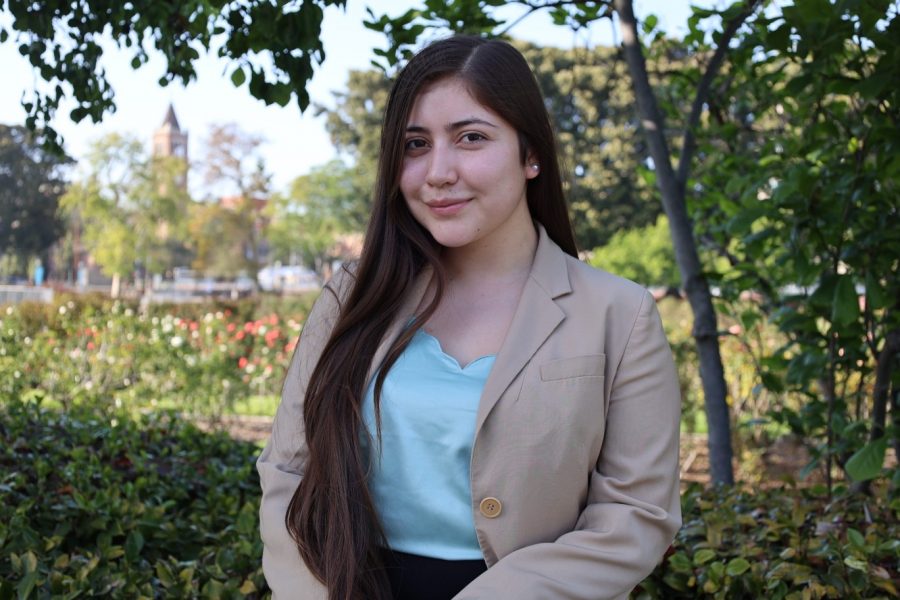

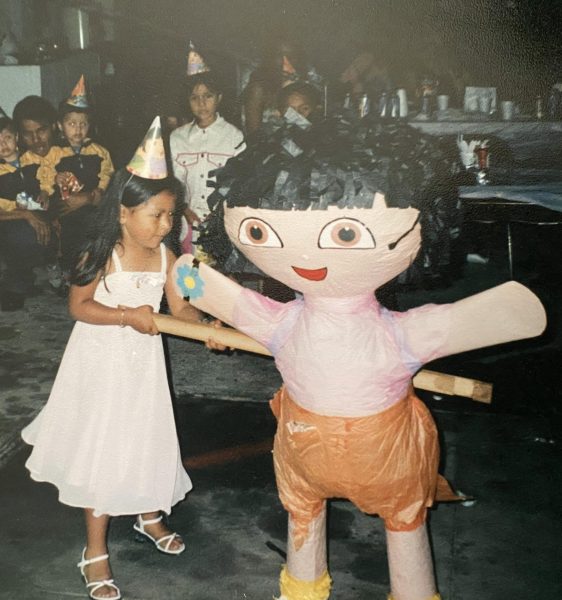
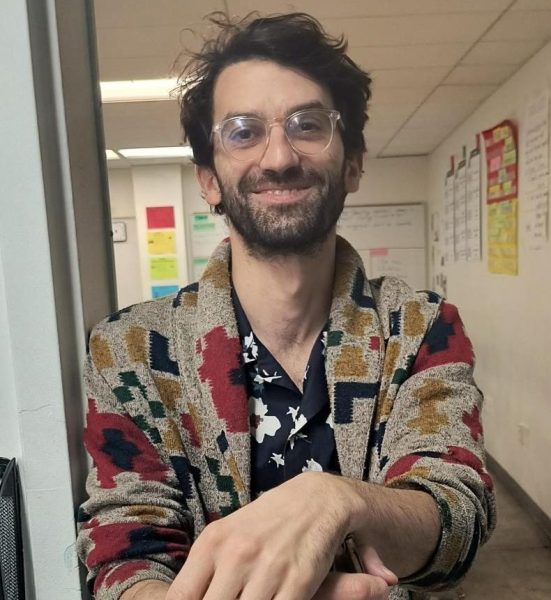
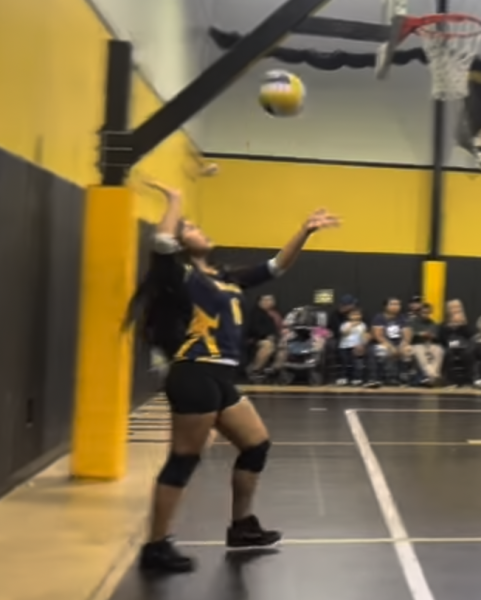
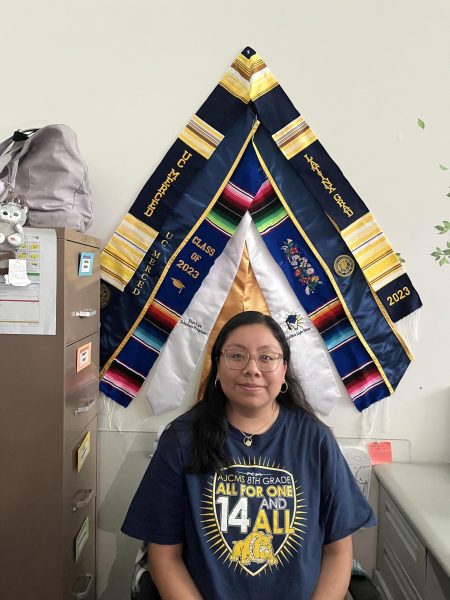
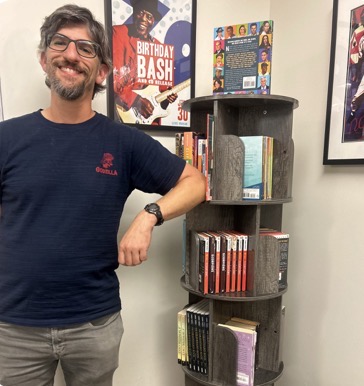
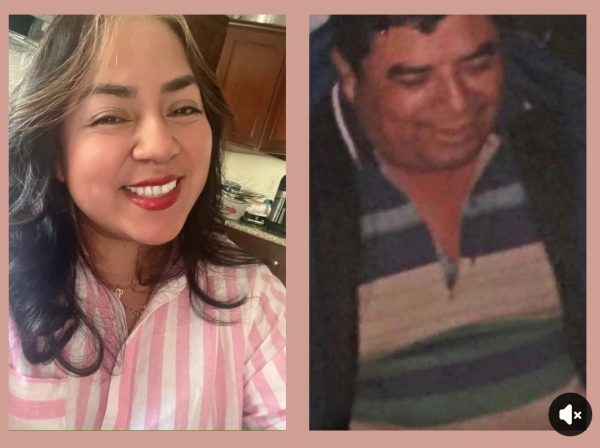
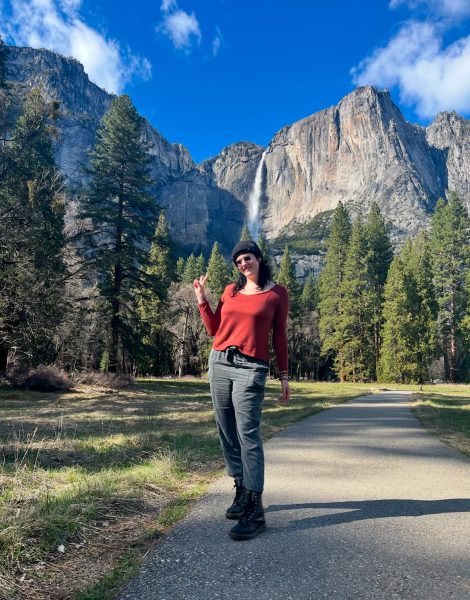
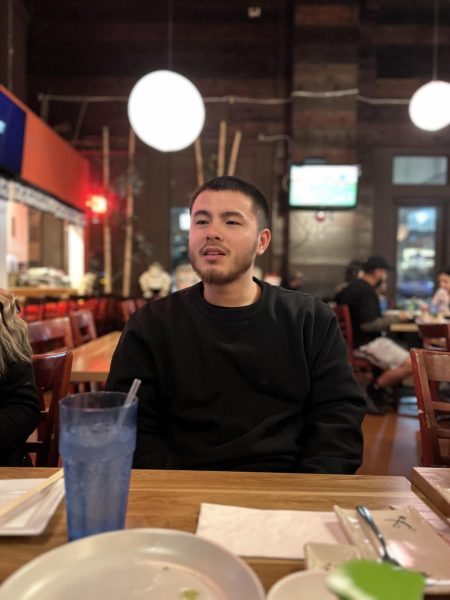
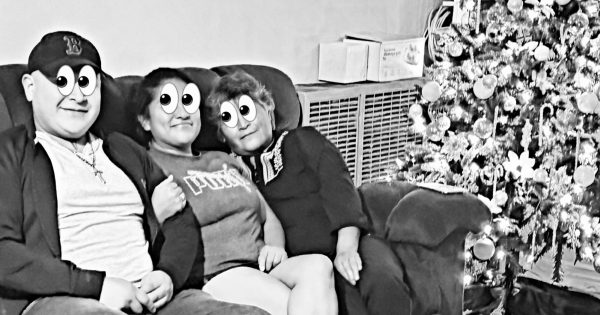
Sherlyn • Oct 25, 2021 at 12:57 pm
I think this was a good story
David • Oct 7, 2021 at 9:03 am
Very good interview i like the questions and as a hopeful future lawyer this was helpful
Mathew Gonzalez • Oct 7, 2021 at 8:53 am
Wow! Laura is a hard working person,her job seems like it takes so much time but, in a way its pretty interesting and cool how she helps people out!